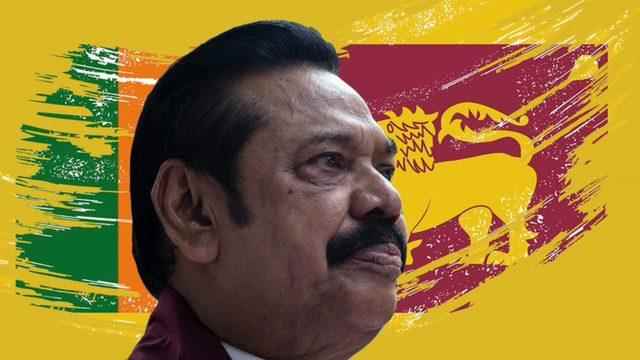“Doesn’t anyone in your country have a surname other than Rajapaksa?”
This sentence, which we quoted from a famous anecdote in Sri Lanka, seems to summarize how the Rajapaksa family has taken over the country in the last 20 years.
In the joke, a fictitious Chinese official visits Sri Lanka and is surprised to find that the last name of every person he meets is Rajapaksa.
This power of the Rajapaksa family is now under threat.
The country has been rocked by the biggest economic crisis since 1948 when it declared its independence from Britain, and experts blame the government’s economic policies for this situation.
The deep-rooted power of the Rajapaksa family has already begun to bleed.
Mahinda Rajapaksa, the country’s prime minister and former president, who resigned in May, resigned after protests that had continued since April and spread across the country.
Mahinda is also the older brother of incumbent president Gotabaya Rajapaksa.
This resignation caused a great earthquake in the country.
Ayeshea Perera, one of the BBC’s Asia editors, says the resignation is a “humiliating” step for the future of Mahinda Rajapaksa, who has been one of Sri Lanka’s most powerful figures for years.
The Rajapaksa family, whose origins are rooted in long-established landowners in Hambantota in the south of the country, began to show their strength in domestic politics when Mahinda Rajapaksa was elected as the youngest member of the Assembly in 1970.
In the 1980s, both Mahinda and her older brother Chamal were MPs.
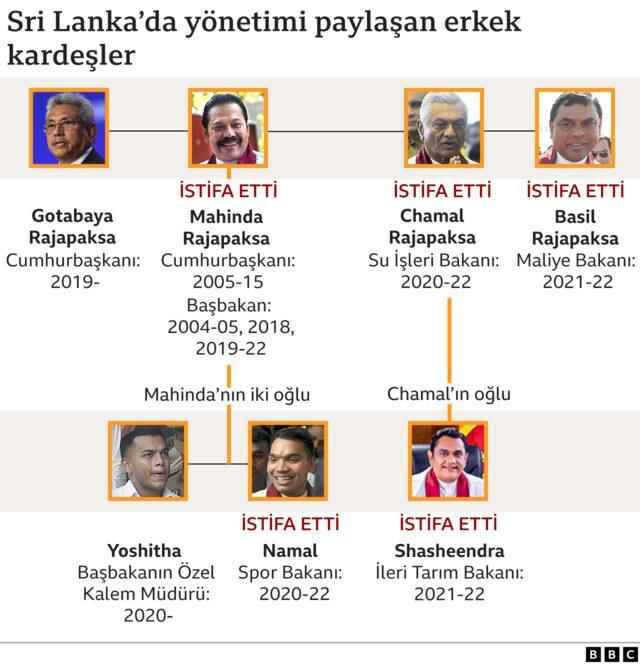
Accused of human rights violations
Mahinda was accused of violating human rights for her harsh intervention in a leftist group’s revolt between 1987-89 and asked the United Nations (UN) to intervene in the crisis.
He was appointed Minister of Finance in 1994. Mahinda, who became prime minister 10 years later, was elected president in 2005.
The civil war, which started with the uprising of the separatist Tamil Tigers organization in 2009 and lasted for nearly 30 years, ended bloodily in the country under the rule of Mahinda, who served as Sri Lanka’s president for two terms (2005-2015).
Despite this victory, Mahinda was accused of both human rights violations against ethnic and religious minorities and corruption. However, he has always denied these allegations.
Despite these controversies, the Rajapaksa family continued to monopolize Sri Lankan politics.
Gotabaya, who was brought to a senior role in the Ministry of Defense, was praised by some for his skill in leading the civil war.
Another member of the family, Chamal, served in ministries such as Agriculture, Fisheries and Water Affairs, while one of his brothers, Basil, held positions in the ministries of Finance and Economic Development.
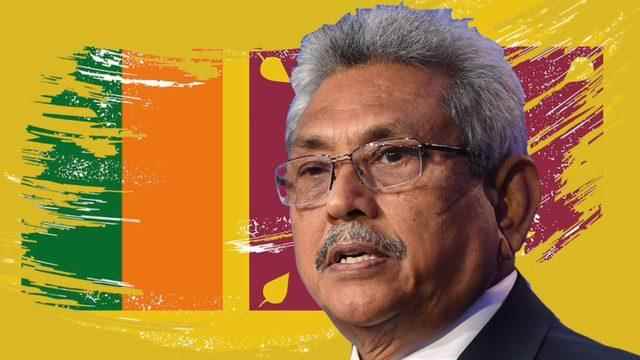
Other relatives of the four brothers also held positions in various government agencies, notably Mahinda’s son, Sports Minister Namal, and Yoshita, who once served as the prime minister’s chief of staff.
But it came as a big surprise that Mahinda won the presidential election in 2015, and the family’s power began to wane.
4 years later, this time the Rajapaksa family regained power in politics when he came to the post of president of Gotabaya and took the wheel.
Known for its nationalist policies, Gotabaya benefited from his family’s ties to the legislature and executive in the country, which was shaken by the attacks of the Islamic State of Iraq and the Levant (ISIS) in April 2019, which killed more than 250 people.
Corruption allegations
Anti-government protests, organized due to the economic crisis after the Covid pandemic, brought up corruption allegations against the Rajapaksa family again.
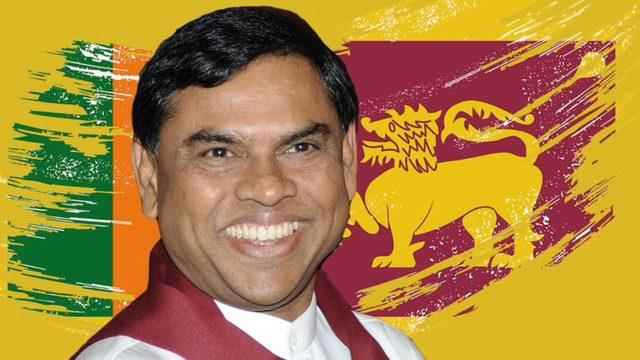
“A lot of people think that Mahinda Rajapaksa allowed the welfare of the country to be trampled on for the sake of her family’s economic interests,” Ayeshea Perera emphasizes.
Some posters hang on the streets of Sri Lanka calling on the Rajapaksa family to pay back the country’s “stolen money”.
As the Rajapaksa’s reputation eroded, divisions arose within the family.
As a matter of fact, at the end of last month, news that a power war broke out between the Mahinda and Gotabaya brothers, who wanted to control their supporters, was reflected in the media.
‘Gota go home’
After the economic difficulties, many of the voters who previously voted for Gotabaya are now supporting the protests by carrying banners that read “Gota home” in reference to Gotabaya’s nickname.
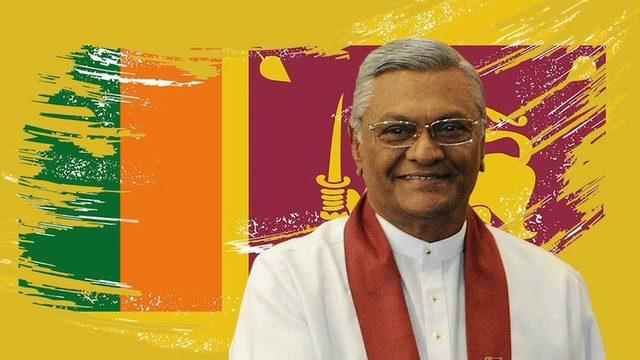
Groups protesting the government tried to storm the prime minister’s residence in spring, after pro-government supporters intervened and attacked the peaceful protests. The angry protester set fire to some of the Rajapaksa family properties.
Protesters also looted monuments for Gotabaya’s parents, allegedly using government funds, sparking corruption charges.
Although nearly all cabinet ministers have resigned and most lawmakers have withdrawn their support for the government, President Gotabaya has said he is not considering resigning.
The Rajapaksa family continues to hold on to the seat of power, but it is clear that it is finding it increasingly difficult to maintain its unwavering position in Sri Lankan politics.
In these first days of July, Rajapaksa’s residence was seized by demonstrators, while Rajapaksa’s location is still unknown.
